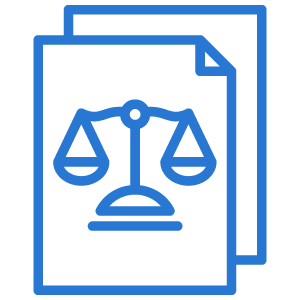
Hiring Compliance: What You Need to Know

Launching and running any business involves a certain level of risk. From concerns for safety, to ethical risks there is no limit to the things that can go wrong for both new and more established businesses. That’s why regulatory compliance is crucial to all companies.
You may already be familiar with risks specific to your industry or product, but official governance helps ensure risks are kept to a minimum. It's easy to overlook critical issues as a company leader when you have so much to consider. That’s where concepts like regulations and compliance can do the heavy lifting for you, tapping into a wealth of knowledge from the businesses that predate your own.
Every industry has regulations to protect your employees, consumers, stakeholders, and your company’s reputation. Hiring and recruiting is no different.
Understanding Compliance: A General Overview
Compliance is the foundation of a trustworthy and responsible business. It aligns the company’s operations and internal policies with external laws to guarantee integrity and accountability. Effective compliance demonstrates your commitment to responsible business practices, which is essential today.
This complex web of rules, regulations, standards, and policies governs everything from manufacturing companies and logistics operations to hospitality organizations and financial institutions and everything in between. Regulations span multiple industries, including:

Workplace safety

Environmental impact

Fair hiring practices

Operational legality

And many more...
While some regulations are limited to specific industries, there are some essential things that every business leader should consider when approaching regulatory compliance.
Laws and Regulations Are the Foundation for Compliance
Compliance may sometimes feel overwhelming, but remaining diligent in this practice shows potential partners and customers invested in your company that you are committed to adhering to laws and regulations at federal, state, and local levels to benefit them.
Regulatory Compliance Focuses on Upholding Ethical Standards
While upholding your legal end of the bargain in doing business, keeping the ethical standards of business practices and your industry is equally vital. You comply with regulations not just to avoid issues, but because you genuinely care about treating your employees, customers, and community fairly and ensuring their safety.
Risk Management
It is easy to look at maintaining compliance as a colossal task. Still, the most important thing to remember is that the regulations themselves serve as an operating manual for avoiding risk to your business.
Potential risks may include:
- Workplace Injury
- Lawsuits
- Reputational damage
- Mistrust
- And more
Compliance Translates Transparency, Accountability, and Trust
Effective compliance translates to transparency, which fosters trust among employees, customers, and the broader community. This trust is crucial for long-term business success with customers, stakeholders, and employees, whether permanent or temporary workers.
Your employees and partners want assurance that they are associated with a company committed to responsibility and transparency.
Remember That Compliance is Dynamic
The regulatory landscape constantly changes, so staying updated and adaptable is crucial for compliance. As these changes happen your team may not have the time to check as frequently as necessary.
Thankfully, there are some steps you can take to streamline the process, staying up to date without excessive disruption:

Assign regulatory monitors for various regulatory areas. If your organization does not have in-house legal counsel and does not work with external counsel, assign someone in each relevant department to monitor regulatory changes.

Regularly check employment industry websites, such as the Society for Human Resource Management (SHRM) or Staffing Industry Analysts (SIA), to catch all the latest changes, share them with leadership, and make the necessary changes to ensure compliance.

Attend industry conferences to meet with peers, gain information on-site, and connect with a newly formed network of resources.
Employment Laws for Various Industries
Employment laws and regulations are crucial and relevant to everyone hiring or enlisting the services of workforce solution partners.
Universal compliance requirements include:
- Equal Employment Opportunity Commission (EEOC) standards
- Fair Labor Standards Act (FLSA)
- Americans with Disabilities Act (ADA)
- Title VII of the Civil Rights Act
- Employee eligibility laws (Form I-9 and E-Verify)
How to Maintain Consistent Regulatory Compliance with Our Support
Partnering with a workforce solution provider like Surge can significantly alleviate the compliance burden from your team. Surge handles various aspects of the hiring process, including background checks and employment verification, ensuring adherence to relevant laws and regulations.
Our partnership allows your business to focus on core operations while Surge maintains compliance standards for you.
Contact us to learn more about our services to ensure compliance and tap into our national network of qualified associates help you reach your business goals.
- https://www.metricstream.com/learn/comprehensive-guide-to-regulatory-compliance.htm#:~:text=Regulatory%20compliance%20is%20important%20to,businesses%20operate%20fairly%20and%20ethically.
- https://www.forbes.com/advisor/business/background-check/
